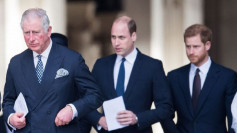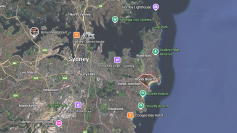North Korea is ratcheting up tensions on the Korean Peninsula, preparing to blow up critical cross-border roads linking the country to South Korea, according to statements from South Korean officials on Monday. The move comes amidst escalating hostility, fueled by North Korea's accusations that South Korea deployed drones over its capital, Pyongyang, to scatter anti-North Korean propaganda leaflets.
This fresh wave of tension has sparked a fierce war of words between the two nations, with Pyongyang threatening military retaliation should these drone flights continue. South Korean military officials have reported that North Korean forces were seen camouflaging roads along the heavily fortified border, seemingly in preparation for their destruction. These routes, once symbols of hope and diplomacy, now face the risk of being severed as tensions reach a boiling point. While the exact timing of the potential destruction is unclear, officials from Seoul's Joint Chiefs of Staff suggested the act could happen imminently.
The escalation began on Friday when North Korea accused South Korea of political and military provocation, claiming that its southern neighbor had used drones to drop propaganda leaflets over Pyongyang. North Korean leadership responded with a series of threats, warning that such actions could trigger armed conflict. Kim Yo Jong, the powerful sister of North Korean leader Kim Jong Un, went so far as to implicate the United States in her country's grievances. She suggested that Washington, along with Seoul, would bear responsibility for any outbreak of violence, stating, "If the sovereignty of a nuclear weapons state was violated by mongrels tamed by Yankees, the master of those dogs should be held accountable for this."
Tensions on the peninsula have been simmering since 2019, following the collapse of U.S.-led diplomatic efforts to denuclearize North Korea. Since then, Pyongyang has steadily increased its threats against both South Korea and the United States, while ramping up its nuclear arsenal. While North Korea is known for issuing inflammatory statements, defense experts are warning that the current situation signals a more serious potential for military escalation.
South Korea has neither confirmed nor denied involvement in the alleged drone flights. "We will not be drawn into their provocations," said Lee Sung-jun, a spokesperson for South Korea's Joint Chiefs of Staff. However, South Korean officials have acknowledged the need to strengthen their anti-drone defenses, particularly after a December 2022 incident in which North Korean drones entered South Korean airspace and hovered over the capital for several hours.
There is also speculation about civilian involvement in the drone activity. Lee Kyoung-haing, a drone operations expert from Jungwon University, commented that while civilians could theoretically launch drones capable of reaching Pyongyang, such actions would likely require government oversight. North Korea, meanwhile, insists that the drones involved were too sophisticated to have been the work of activists alone, attributing them to official military operations.
North Korea has issued increasingly dire warnings in response to the drone incidents, pledging to use military force against any future incursions. The North Korean military has reportedly placed eight artillery units along the border on high alert, ready to retaliate. State-run Korean Central News Agency (KCNA) reported that preliminary orders have been given to frontline units to "open fire" on South Korean targets if another drone is spotted.
This latest escalation is part of a long-standing conflict between the two Koreas, which remain technically at war since the Korean War ended in an armistice in 1953, rather than a formal peace treaty. The cross-border roads that North Korea is now threatening to destroy were established during periods of improved relations, such as the 2018 summit between Kim Jong Un and then-South Korean President Moon Jae-in, when both leaders pledged to end hostilities and usher in an era of peace.
However, North Korea has since backtracked on those promises, reintroducing heavy weaponry into the demilitarized zone and restoring military guard posts that had previously been removed. Tensions have further heightened with the re-emergence of Cold War-style provocations, such as North Korea launching balloons filled with garbage into South Korea in retaliation for anti-North Korean leaflets sent by activists.
Though experts caution against predicting full-scale military conflict, given the superior military capabilities of the United States and South Korea, the situation remains precarious. "While North Korea has issued many threats in the past, this latest escalation is particularly concerning because it coincides with broader regional instability," warned Lee Kyoung-haing.






